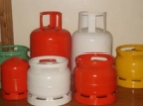
CITIZENS COMPASS—Few weeks after domestic gas became a scarce commodity for a common man in Nigeria, the Liquefied Petroleum Gas Retailers Association of Nigeria (LPGAR) has exempted itself from the scarcity and hike in price.
Mr Ayobami Olarinoye, Chairman of LPGAR under the Nigeria Union of Petroleum and Natural Gas Workers, said this in a statement released on Saturday in Lagos.
He said the rising cost and limited availability of LPG stem from supply challenges, not price manipulation by retailers.
“The recent scarcity and spike in LPG prices have brought untold hardship to millions of Nigerian households and businesses. We understand this pain and feel compelled to clarify the role of retailers in this crisis,” Olarinoye said.
The chairman was reacting to comments by the President of the Nigerian Association of Liquefied Petroleum Gas Marketers, who reportedly blamed retailers for the price surge.
Describing the allegation as “unfair and misleading,” Olarinoye explained that retailers neither operate at the depot level nor act as importers or primary off-takers.
“Our operations are limited to buying gas from plant owners and selling to end-users. Many of us travel to neighbouring states to purchase LPG at high costs due to supply shortages, which naturally affects retail prices,” he said.
According to him, although Dangote Refinery has not increased its gas price, supply irregularities have created a demand-supply imbalance that continues to drive up prices.
“Some retailers have had to shut their outlets for days or weeks because they couldn’t access supply, resulting in huge business losses and operational strain,” he said.
Olarinoye stressed that the price hike is driven purely by market forces.
“If plant owners increase prices, we have no choice but to adjust ours. We cannot be expected to sell at a loss,” he said.
He noted that while Dangote Refinery is a major market player, it currently lacks the capacity to meet Nigeria’s total LPG demand, which has risen from less than one million metric tonnes to over 2.3 million metric tonnes annually.
He said off-takers, who should complement Dangote’s supply by importing or sourcing from the Nigeria Liquefied Natural Gas (NLNG), have slowed operations due to uncompetitive pricing.
“Dangote sells a 20-metric-tonne truckload of LPG at about N15.8 to N16 million, while off-takers offer the same quantity at N18.5 to N18.6 million.
Naturally, buyers opt for the cheaper option, reducing importation and worsening scarcity,” he said.
He added that the recent PENGASSAN strike only aggravated an already fragile supply chain.
“Even after the strike was called off, supply has not stabilised. Some plant owners have paid for gas from Dangote but are yet to load due to long queues and limited availability,” he explained.
Olarinoye urged the government to bridge the price gap between Dangote and off-takers to ensure consistent supply and market stability.
“We don’t know the exact landing costs from NLNG, but if off-takers were making enough profit, they would price competitively. As it stands, they’re reluctant to restock,” he said.
He stressed that the ongoing crisis is rooted in systemic supply issues, not retailer manipulation, and called for collaboration among stakeholders.
“Blaming retailers will not solve anything. We urge the government and industry players to work together to boost domestic production, encourage competitive pricing, and stabilise supply nationwide,” he said.
Olarinoye assured customers that the union remains committed to restoring normalcy.
“We share the public’s frustration and are working toward solutions. Until then, supply and demand will continue to drive market prices,” he noted.
The recent spike in the price of cooking gas across Nigeria has been traced to temporary supply disruptions and rising distribution costs, according to the Nigerian Association of Liquefied Petroleum Gas Marketers.
The marketers said the scarcity and price hike were not due to hoarding or deliberate manipulation by retailers but stemmed from logistical challenges affecting product supply to depots nationwide.
In several parts of the country, a kilogram of cooking gas now sells for between ₦1,800 and ₦2,000, compared to about ₦1,200 earlier in the year. The situation has deepened economic hardship for many households, forcing some Nigerians to revert to alternative cooking methods such as charcoal and firewood.
…NAN




